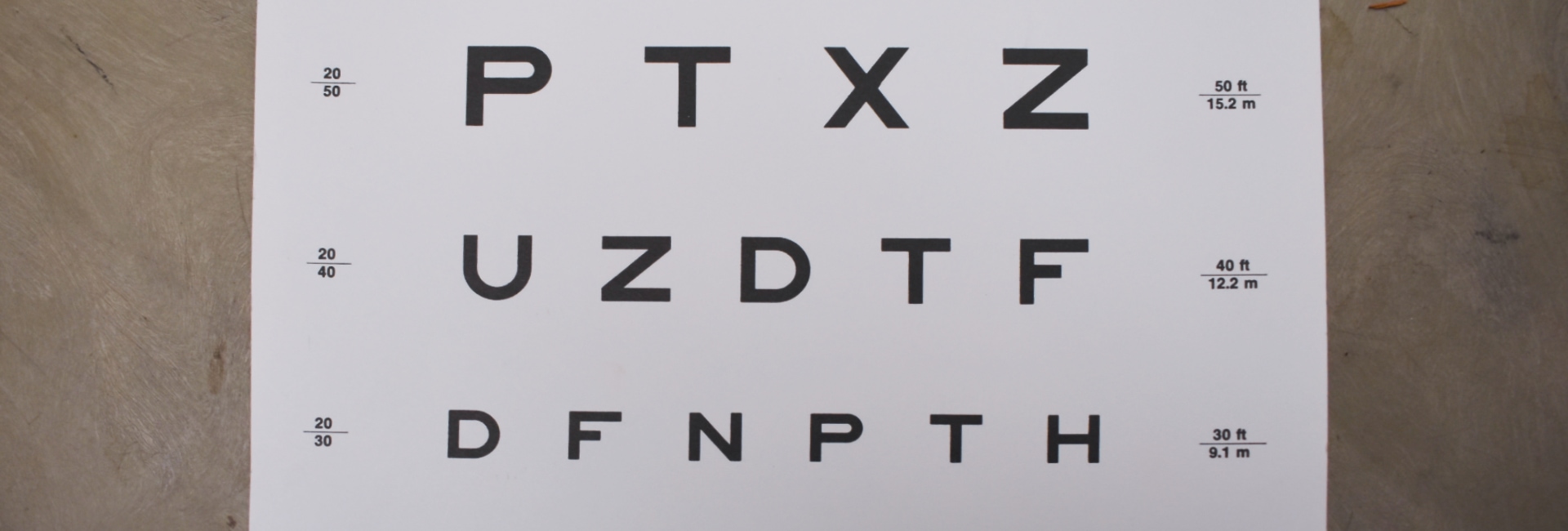
Pre-optometry is not a major and there is no "correct" major for pre-optometry. While most students major in a science area like biology, chemistry, or math, a major in science is not required. Optometry schools seek candidates with diverse interests who are capable of handling rigorous science courses. So the best advice is to select a major in an area in which you are interested and in which you can do well and can balance with the science and math courses required for application.
Every optometry school has a specific list of pre-requisite courses. It is important that you identify the schools in which you are interested and determine the courses required by each of them. The common set of required courses typically includes:
We offer many other courses that will be helpful to your pre-optometry training and you should consider taking, including: Immunology, Histology, Comparative Chordate Anatomy, etc.
You can find a list of perquisites for each Optometry school through OptomCAS.
The grade point average (GPA) is an important component of the requirements for admission to dental school. It is not necessary to have a 4.0. The average GPA of successful optometry applicants in the US is around 3.45 overall GPA (on a 4.0 scale). You should strive to maintain a competitive GPA, but also focus on participation in extracurricular activities to demonstrate interests beyond academics. If you have a poor first year but steadily improve in the following semesters, you still have a good chance of admission to dental school. However, if you start strong and then fade, your chances for admission could be diminished.
Applications to optometry schools are made through the Association of Schools and Colleges of Optometry (ASCO) via the OptomCAS system; information can be obtained at www.aptomcas.org. The application cycle begins in May and should be completed early in the summer preceding the Senior year of undergraduate work.
The OAT is offered multiple times per year. Click “Find Your Test Site” on the OAT website to determine when individual centers are offering the exam. The OptomCAS application opens during the last week of June each year. Individual programs may have varying deadline dates. We recommend submitting your application early, within the first few weeks of July for OptomCAS.
Students in need of financial assistance can apply for partial fee waivers for the OAT and fee assistance for OptomCAS applications.
The Optometry Admission Test (OAT) is a 5 hour, computer-based admission test that should be taken in Spring after the Junior year of undergraduate study. Topics covered on the OAT include:
Preparing for the OAT takes time and dedication. The Association of Schools and Colleges of Optometry (ASCO) is the service that offers the OAT. They provide official OAT preparation material and an Exam online tutorial. The OAT is offered multiple times per year. Click “Find Your Test Site” on the OAT website to determine when individual centers are offering the exam. OAT scores are valid for two years.
Shadowing experiences are an important part of your pre-optometry training. Exposure to your chosen field is an important way for you to learn what Optometry is truly like. While many schools do not have minimum required shadowing hours, most schools do suggest it. It's important that you research the schools in which you are interested to identify specific requirements.